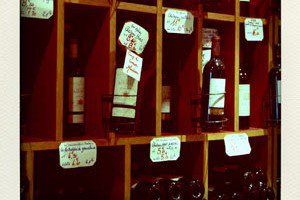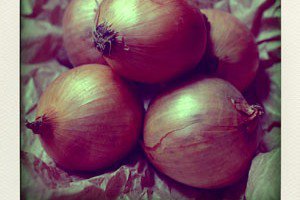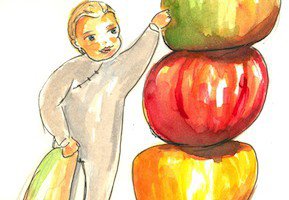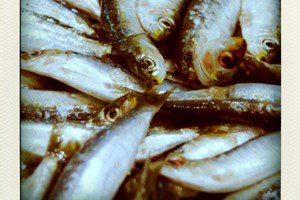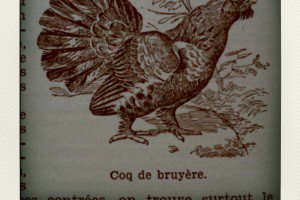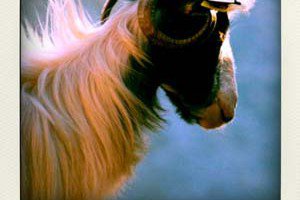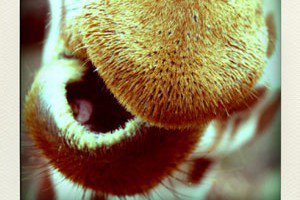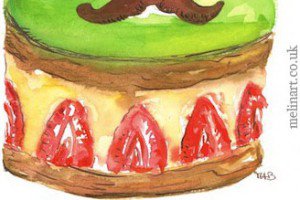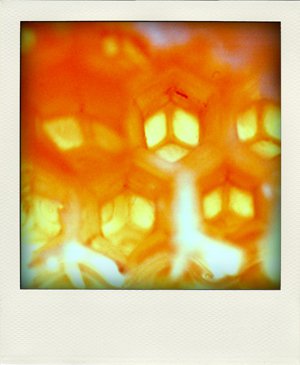
This is part of a series on French idiomatic expressions that relate to food. Browse the list of idioms featured so far.
This week’s expression is, “Faire son miel de quelque chose.”
Literally translated as, “making one’s honey out of something,” it means profiting from a situation.
Example: “Elle enchaîne les déclarations provocantes, et évidemment, les journalistes en font leur miel.” “She makes one provoking statement after another, and of course, journalists make their honey out of it.”
Listen to the idiom and example read aloud:
(If no player appears, here’s a link to the audio file.)
The image refers to bees, naturally, which go from flower to flower to harvest nectar and/or pollen, and go on to turn part of it into honey. Even though this process plays a capital role in the plant’s reproduction — hence the major concern over CCD — in the context of this idiom the bee is seen as taking advantage of the flower’s resources for its own needs.
It is a recent expression that only appeared in the ninth edition of the official Dictionnaire de l’Académie Française, which was published between 1992 and 2000.
However, I have found several sources that credited sixteenth-century philosopher Montaigne for introducing the analogy in the first volume of his Essays, as he explains that a child will profit from the books he reads as a bee profits from the flowers it visits.
More precisely, in chapter 25, a section on the education of children, he writes, “Les abeilles pillotent de çà de là les fleurs, mais elle en font après le miel, qui est tout leur ; ce n’est plus thym, ni marjolaine : ainsi les pièces empruntées d’autrui, il les transformera et confondra pour en faire un ouvrage tout sien.”
This passage was translated by Michael Andrew Screech in the Penguin Classics edition as “Bees ransack flowers here and flowers there: but then they make their own honey, which is entirely theirs and no longer thyme or marjoram. Similarly the boy will transform his borrowings; he will confound their forms so that the end-product is entirely his.”
Photo note: Pictured above is a closeup look at a piece of honeycomb from Georgia, an intriguing edible that aroused a deluge of fabulous comments when I posted about it.


